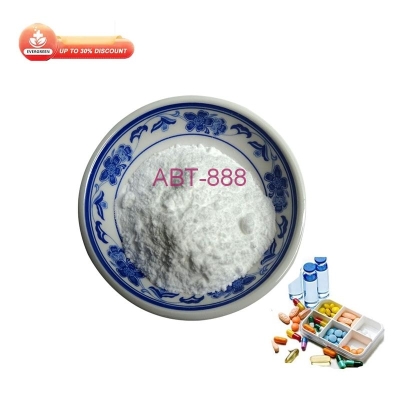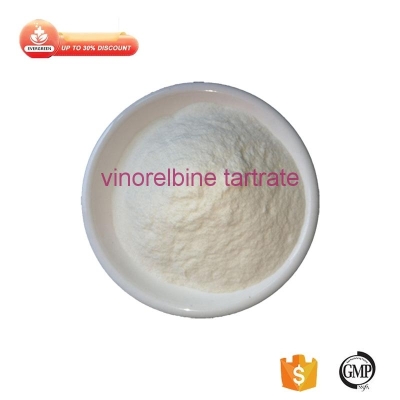-
Categories
-
Pharmaceutical Intermediates
-
Active Pharmaceutical Ingredients
-
Food Additives
- Industrial Coatings
- Agrochemicals
- Dyes and Pigments
- Surfactant
- Flavors and Fragrances
- Chemical Reagents
- Catalyst and Auxiliary
- Natural Products
- Inorganic Chemistry
-
Organic Chemistry
-
Biochemical Engineering
- Analytical Chemistry
- Cosmetic Ingredient
-
Pharmaceutical Intermediates
Promotion
ECHEMI Mall
Wholesale
Weekly Price
Exhibition
News
-
Trade Service
The increase in the incidence ofcolorectal canceramong young people is related to an increase in surgical excision in obese patients
there is currently a lack of national studies to test the link between obesity and recent trends in cancer incidence, so the researchers looked at the current incidence of EC, GC, CRC and PCThe results showed an increase in the incidence of CRC and GC in the 20-49 age group of all age groups of the PCIn contrast, the incidence of CRC and GC decreased in ecAs in patients over 50 years of age and in all adultsAccording to NIS, the number of obese patients receiving CRC excision has increased in all agesThis trend is in contrast to the general decline in non-obese patients receiving CRC excisionIn addition, EC, GC and PC excision increased only among obese adults over 50 years of ageIt was shown that although the number of CRC, GC and Pc increased over time, we only found a corresponding increase in obese adults who received CRC excisionAs a result, it is possible that early onset of obesity may shift the risk of CRC to younger patientsasPP1 lacksto promote colonectal cancer attack and metastasis progression
early studies have shown that ASPP2 expression reduction can promote tumor invasion and migration by regulating beta-catenin-dependent ZEB1 But the role of ASPP1 in colorectal cancer (CRC) is unclear The researchers analyzed TCGA data, combined with in vitro experiments of CRC cell lines and lung metastasis in the body, and studied the expression level and function of ASPP1 in CRC through a CRC patient tissue chip containing information on clinical pathological parameters It was found that in CRC, ASPP1 lacked the ability to enhance tumor migration and invasion Knocking out ASPP1 can activate the expression of Snail2 by mediasetting the NF-B signal path, which in turn induces the occurrence of EMT (epithelial-interstitial transformation), which is further aggravated in the CRC of the RAS mutation Indicates that ASPP1 may be an important prognostic factor in colorectal cancer treatment, and NF-sp inhibitors may provide new treatment strategies for tumor metastasis in CRC patients with ASPP1 deficiency the level of insulin-like growth factor 1 and the risk of colorectal cancer in the cycle the correlation between insulin-like growth factor 1 (IGF1), insulin-like growth factor binding protein 3 (IGFBP3) levels and colorectal cancer risk in the cycle, researchers recently conducted complementary serology and Mendel randomization (MR) analysis to determine the relationship between iGF1 or IGFBP3 circulating levels and colorectal cancer risk From 2006 to 2010, researchers collected blood samples from 397,380 participants in the UK Biobank study for serum IGF1 levels A total of 2665 colorectal tumors were recorded in the median follow-up of 7.1 years In the multivariate correction model, the IGF1 circulatory level was associated with the risk of colorectal cancer In the MR analysis, the difference in the iGF1 level for every 1 standard deviation predicted based on genetic factors was associated with a higher risk of colorectal cancer IGFBP3 levels predicted based on genetic factors were associated with colorectal cancer risk The risk of colorectal cancer was only associated with one variant in the IGFBP3 gene (rs11177526), which was associated with human characteristics and the level of iGF2 circulation 4.89% of colonoscopies after colorectal cancer or avoiding colonoscopy after colorectal cancer (PCCRC) was not found cancer cells during a colonoscopy, and later diagnosed CRC Recently, researchers examined cases and related factors in PCCRC to quantify the proportion of avoidable PCCRC The researchers reviewed data on 107 PCCRC patients at a single medical centre in the UK from 1 January 2010 to 31 December 2017 As a result, 43% of the identified PCCRC patients were at high risk and 66% were at the far end of the liver bend There was no correlation between the size of colorectal tumors after colonoscopy, the index and the time of diagnosis after colonoscopy In 19 percent of colonoscopies, the gut is poorly prepared, and only 36 percent of colonoscopy escants have enough light to complete Seventy-three percent of PCCRC swasate was determined to be influenced by technical endoscopy, 17% of PCCRC was affected by management factors, and 27% of PCCRC was affected by decision-making factors 27% of PCCRC is classified as a possible missed lesion, and previous tests are sufficient; 58% of PCCRC may miss lesions, previous tests are inadequate; 8% are detected lesions without removal; and 7% are previously observed lesions that have not been completely removed 89% of PCCRC is considered avoidable The study suggests that nearly 90% of colonoscopies after colorectal cancer can be avoided : Nonsteroidal anti-inflammatory drugs can reduce the risk of colorectal cancer
Although nonsteroidal anti-inflammatory drugs (NSAIDs) reduce the risk of colorectal cancer (CRC), their role in prevention CRC after colonoscopy has not been determined A retrospective cohort study was designed to determine whether NSAIDs reduced the risk of PCCRC after colonoscopy was negative The researchers included all patients (aged 40 and over) who underwent colonoscopies between 2005 and 2013 The results showed that of the 187,897 eligible patients, 21,757 (11.6%) were NSAID users 854 patients (0.45%) developed PCCRC NSAIDs are associated with lower PCCRC risk, but not CRC developed for more than 3 years Near end aHR is 0.48 and far-end cancer is 0.55 The use of NSAIDs was shown to be negative after baseline colonoscopy and was associated with a lower PCCRC risk the prognostic value of peripheral blood natural killer cells in colorectal cancer The association between natural killer (NK) cells and the survival of colorectal cancer (CRC) patients remains controversial The purpose of this study was to clarify the prognostic value of peripheral blood NK cells in CRC patients The researchers reviewed 447 CRC patients who underwent several surgery and chemotherapy The results showed that the percentage of peripheral blood NK cells was an independent prognosis indicator for CRC patients A higher percentage of NK cells indicates a lower percentage of cells with a lower survival time The NK cell percentage was positively correlated with T and B lymphocyte counts and negatively cortised with patient age and albumin levels The area under the receptor operating characteristic curve is 0.741, and NK cells have medium predictive value for CRC's 3-year survival rate The percentage of NK cells in older and late-stage clinical patients is lower than in younger patients and early clinical patients It is indicated that NK cells in the blood are independent predictors of survival in CRC patients, and that the total count of NK cells and B lymphocytes can increase prognostic value Source: MedSci Original







